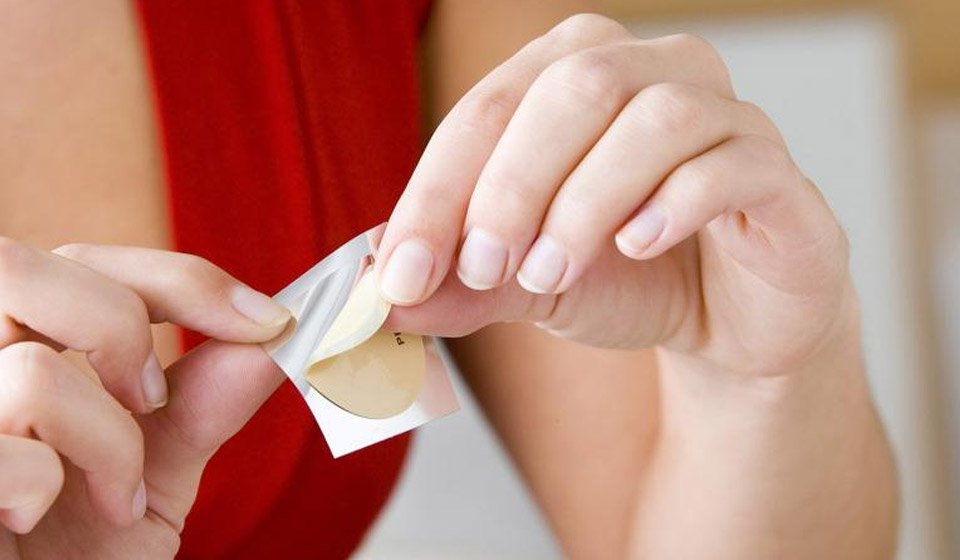If you’re considering bariatric surgery or have already undergone it, you know that taking vitamin and mineral supplements is vital to maintaining your health. The surgery itself can have a significant impact on your body’s ability to absorb nutrients, which means that it’s essential to take supplements regularly.
The popularity of vitamin and mineral patches has risen in recent years, but many patients wonder whether they are effective. These transdermal patches have a clear appeal because you can wear one for several hours each day rather than taking supplements orally. But the question is, how effective are vitamin and mineral patches after bariatric surgery? Keep on reading to find out more.
What Is A Vitamin and Mineral Patch?
A vitamin and mineral patch is a transdermal patch that is applied to the skin rather than taken orally. According to the claim, such patches can deliver nutrients into the skin that are absorbed into the bloodstream, like tablets or capsules.
Transdermal patches absorb nutrients into the skin and deliver them to the bloodstream. The nutrients must pass through the epidermis, or outer layer of skin, to reach the blood vessels, where they can flow into the bloodstream.
Because the nutrients bypass the digestive system, persons with changed guts, such as bariatric surgery patients, are thought to be better able to absorb the nutrition in this manner.
Can Vitamins And Minerals Be Absorbed Through The Skin?
Some medications, such as pain relievers and smoking cessation, have proven to be effective in transdermal delivery. However, preliminary research indicates that transdermal patches may not provide adequate nutrient absorption for people who have had bariatric surgery.
A 2019 research on bariatric surgery patients compared the efficacy of vitamin patches to pills. According to the study’s findings, those who use patches are more likely to be deficient in vitamin D and other vitamins and minerals than those who take pills.
Another 2020 study compares the effects of an iron pill vs. an iron patch on iron levels. Results from this research demonstrate that after eight weeks of daily use, iron levels increased in individuals using an iron pill, whereas levels did not change in those using an iron patch.
Are Vitamin and Mineral Patches Beneficial To Bariatric Patients?
On paper, vitamin and mineral patches sound great. But bariatric surgery patients need a lot of certain nutrients—and getting them through the skin may not be enough. After bariatric surgery, a person may not be able to get enough of the nutrients they need from bariatric vitamins and mineral patches because they may not be absorbed well enough.
Those who have had bariatric surgery should collaborate with their surgery team and primary care doctor to develop the best vitamin and mineral regimen. If your medical staff suspects that you have a nutrient deficiency, they will be able to recommend more intensive treatment, which may involve increased dosing over a prolonged period of time. In addition, if you have difficulty swallowing pills or capsules, your medical team may be able to assist you in finding an adequate liquid nutrient regimen.
Recommended Nutritional Supplements
Multivitamin
For the first few months after NQMIS gastric sleeve surgery, vitamins must be chewable or liquid. Take one serving of an over-the-counter multivitamin in the morning and one serving at bedtime. Several multivitamins are specifically designed for people who have undergone weight-loss surgery.
How you feel and what you need are the primary considerations when selecting the best supplements. Some people, for instance, may experience low iron levels following weight loss surgery, even if they take a multivitamin regularly. For the purpose of weight loss, it is possible that you will be advised to take an iron supplement that also contains vitamin C, such as soft iron chews, rather than an increased dosage of your multivitamin.
Vitamin B12
You can take this supplement sublingually (under your tongue) or by injection. Make sure you consult with your treatment professional before making a decision. Take 500 micrograms of vitamin B12 daily if taking B12 orally. If you want to take B12 by injection once a month, you’ll need a prescription from your doctor to find B12 shots near you.
Vitamin D3
Vitamin D3 has a daily requirement of 3,000 international units or 75 micrograms. When calculating whether or not you are getting enough vitamin D, the amount you take should be added to that of your multivitamin supplements. Supplementing with vitamin D3 is recommended if you aren’t already getting enough.
Vitamin C
Most foods, including citrus fruit and vegetables, have vitamin C in their natural forms. There are Vitamin C supplements available for use if necessary.
Many people who struggle with weight also suffer from iron deficiency, and vitamin C plays a key role in facilitating the body’s absorption of this mineral.
Vitamin C’s antioxidant qualities may mitigate anti-inflammatory and cell-damaging effects. Further, collagen protein, which makes up your ligaments and skin, is stimulated in its creation by vitamin C.
Calcium
Following gastric bypass or gastric sleeve surgery, the daily calcium requirement is 1,200-1,500 milligrams. Calcium from food helps you meet your daily requirement. If your diet already contains a lot of calcium, you don’t need to take as many supplements.
Calcium absorption is limited to 500-600 milligrams at a time. Take your supplement in three separate doses throughout the day to improve absorption. It should be taken with each meal. Calcium citrate is the most commonly used calcium form.
Takeaway
Vitamin patches make many claims, but the verdict is yet out on what they can provide. Many patch businesses (as well as their social media promotions) claim that wearing a vitamin-infused patch will aid with diseases and wellness concerns. However, their goods frequently fail to generate measurable outcomes or benefits.
Nutrient delivery by a vitamin and mineral patch has not been tested in post-bariatric surgery patients and cannot avoid all frequent nutrient deficiencies in this population. Furthermore, the FDA does not classify vitamin patches as dietary supplements. Supplements can only be labeled and advertised as products intended for ingestion, such as pills and gummies.
Please see your bariatric surgeon or healthcare team for advice on the best vitamin and mineral supplements to incorporate into your daily life.
















